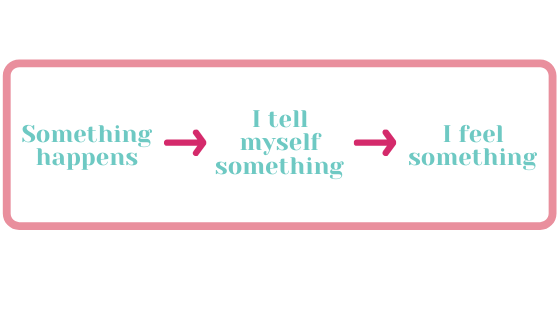Treating PTSD

Cognitive Processing Therapy (CPT) is an evidence-based therapy that has been shown to be effective in reducing the symptoms of post-traumatic stress disorder (PTSD). Domestic violence is a traumatic experience and can result in the development of PTSD. Most clients at Genesis experience PTSD symptoms after the verbal, emotional, physical and/or sexual abuse they experience in their relationships. At Genesis, several of our counselors have been trained in CPT and we have seen significant benefits of this therapy in the lives of our clients.
CPT was initially developed for women by women. In the late 1980’s, Patricia Resick, PhD, Kate Chard, PhD, and Candice Monson, PhD developed CPT after working in rape crisis centers and noticing that the existing treatment methods at the time did not completely fit the experiences of survivors of rape. Since its creation, CPT has been shown to work effectively in treating survivors of physical and sexual abuse or assault, accidents, threats, military combat, or being a witness to violence or death.
When a person is confronted with a threat or danger, such as an incident of domestic violence, the brain instinctively goes into “survival mode” and initiates the body’s systems to fight back, run away or freeze (fight-flight-freeze). During survival mode, the part of your brain used for logical thinking, the prefrontal cortex, goes offline. And it’s a good thing it does, because it would not be helpful for one’s safety and survival to be thinking about their five-year plan or what to eat for dinner that night when they are trying to survive a crisis. When the thinking brain is offline, the person may develop unrealistic or inaccurate beliefs about the threatening situation because the part of the brain that rationally challenges thoughts is not accessible in that moment. Thus, one might develop unhelpful thoughts such as “if I had not talked back, then I would not have been abused” or “the world is not a safe place.” With repeated danger and stress, such as domestic violence, the brain starts to operate in survival mode more often. This chronic use of survival mode leads to the development of PTSD symptoms: hyper-vigilance, difficulty concentrating, intrusive memories or flashbacks, nightmares, irritability, changes in thinking and emotions, and avoiding reminders of the trauma.
In CPT, clients are asked to confront their beliefs related to the past trauma, which means their rational, thinking brain can develop potentially more helpful thoughts. CPT also addresses the negative feelings that are common in survivors of trauma. Like other cognitive therapies, CPT teaches the relationship and connection between thoughts and feelings. When something happens, we think something, which then leads to a feeling. If that thought is self-blaming, rigid, or unrealistic, then it follows that the feelings would be shame, guilt, embarrassment, or anger at oneself.

The goal of CPT is to teach clients how to challenge their thoughts about the past trauma that may be keeping them stuck. Clients typically engage in CPT for 12 sessions where they are assigned homework to help them examine patterns of adverse thinking. Ultimately, the goal is for clients to become their own therapists by learning thought-changing skills to minimize the ongoing negative effects of trauma. Clients will decrease avoidance and emotional numbing, learn to consider alternative viewpoints of themselves and the world, and reduce their levels of distress, anxiety, anger, guilt and shame which are standard symptoms of trauma. While 12 sessions is the typical format for CPT, some clients may be able to complete therapy in fewer than 12. Others may need a few extra sessions to work on particular themes, and their counselor can work with them and develop a treatment plan that is unique to their particular needs.
Through CPT homework, clients reflect on their beliefs related to the trauma and themes of safety, trust, power and control, intimacy, and esteem related to themselves, others and the world. Some common unhelpful thoughts, or “Stuck Points” that survivors of domestic violence may address in CPT include “it’s my fault he abuses me,” “I can’t trust anyone,” “all men will be abusive,” “bad things will always happen to me,” or “I’m not lovable.”
CPT has been endorsed by the U.S. Department of Veterans Affairs and the International Society of Traumatic Stress Studies as a best practice for the treatment of PTSD. The CPT manual has been translated into 12 languages and is being implemented worldwide with survivors of trauma. Through 20 randomized controlled trials, research shows CPT consistently reduces PTSD symptoms.
If you are interested in CPT therapy and want to know if it may be a good fit for you, call the Genesis Outreach office to speak with a counselor at 214.389.7700.
Written by Victoria O’Connor, women & children’s therapist at Genesis Women’s Shelter & Support
